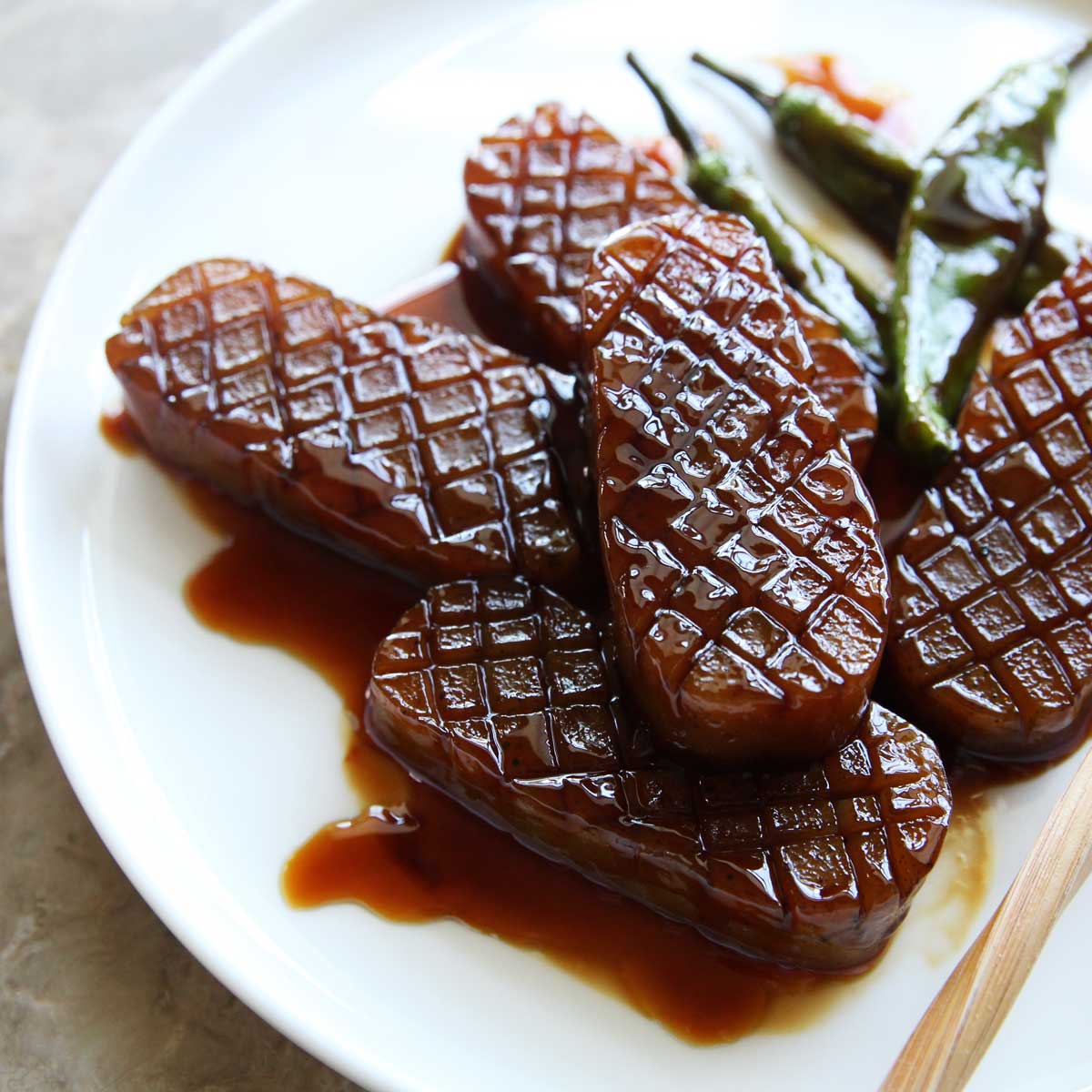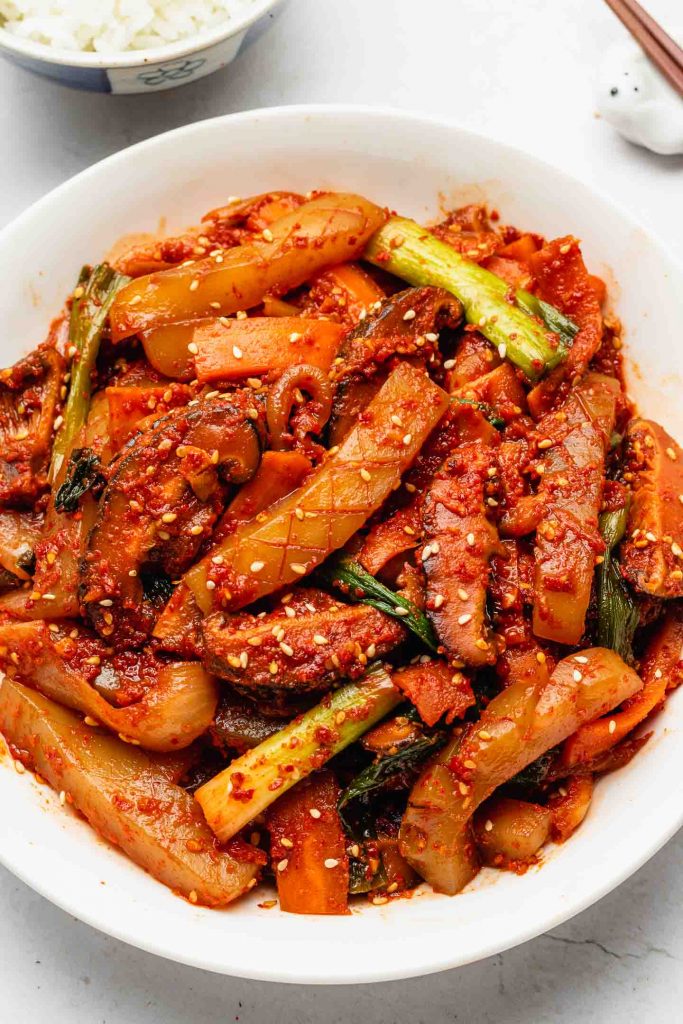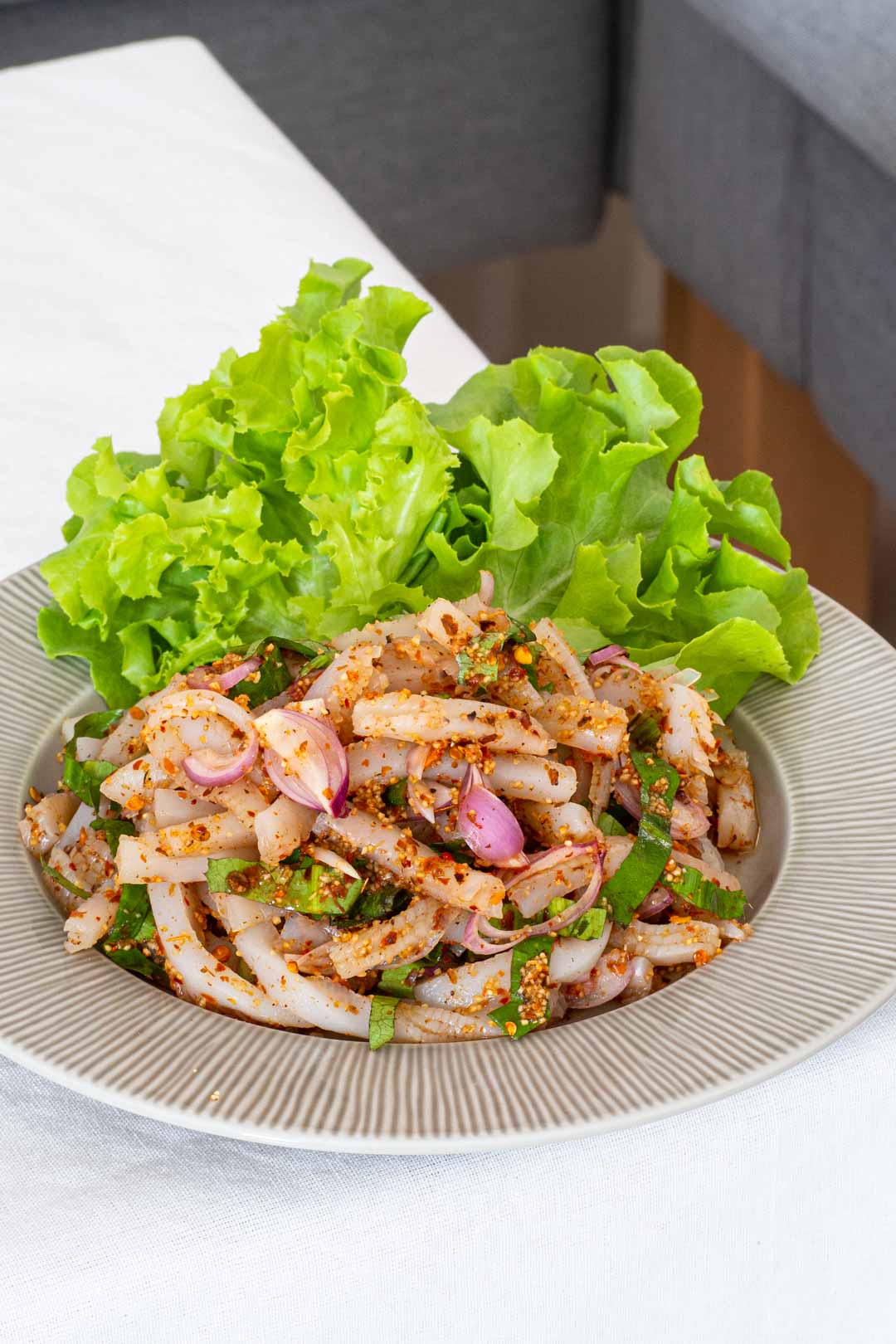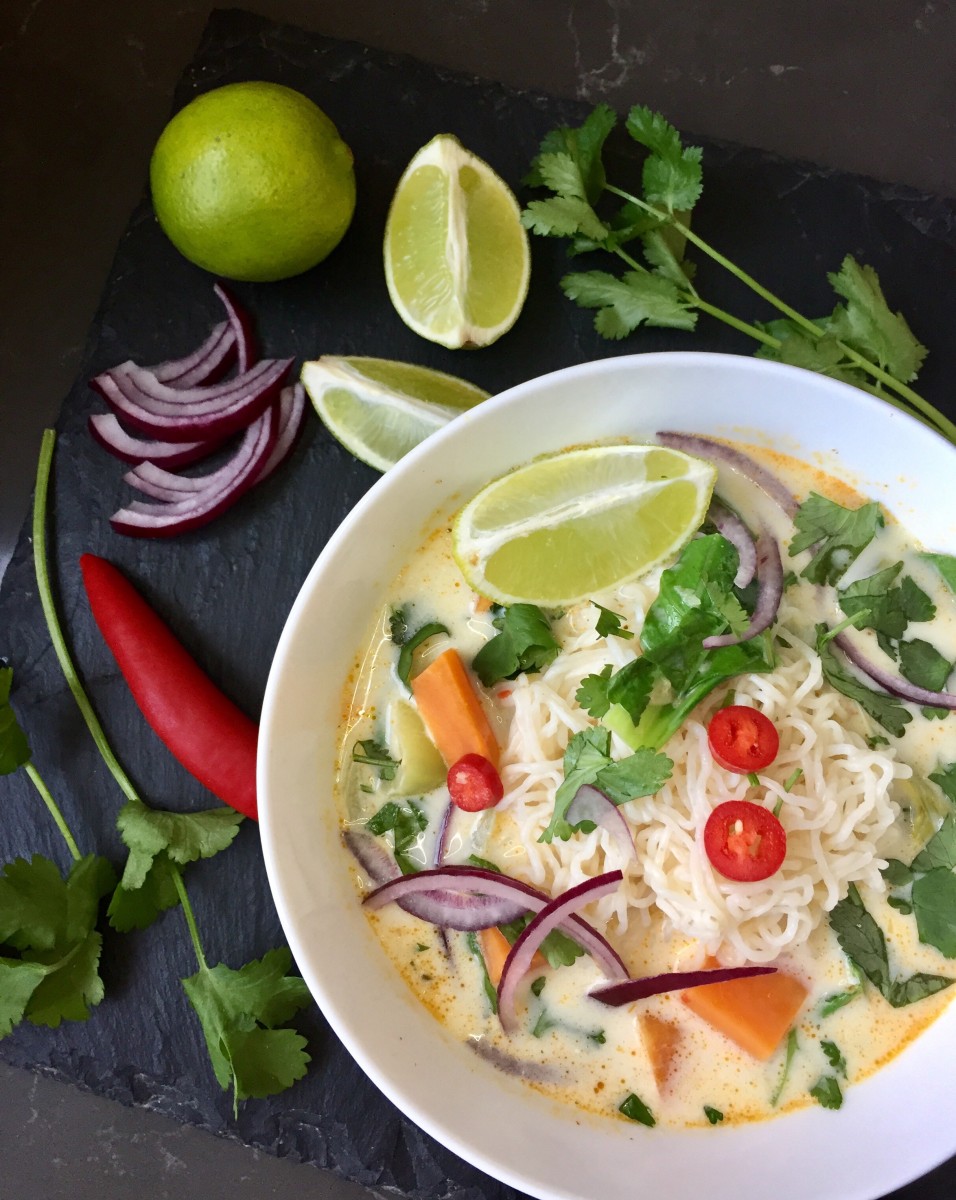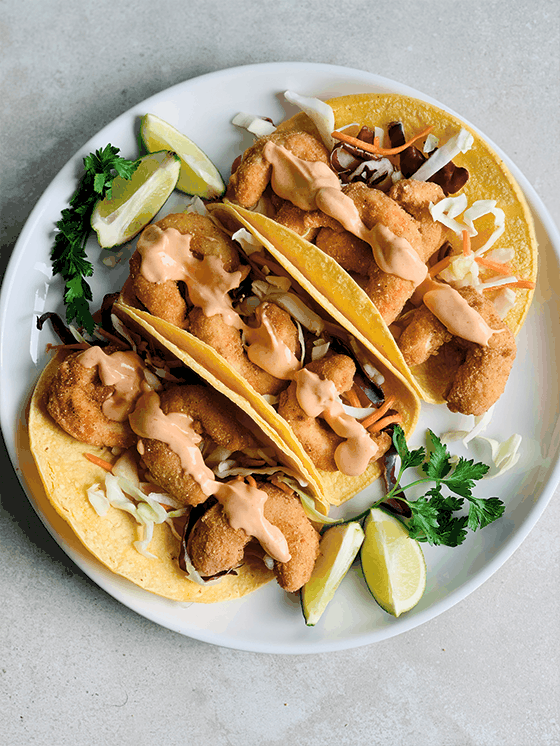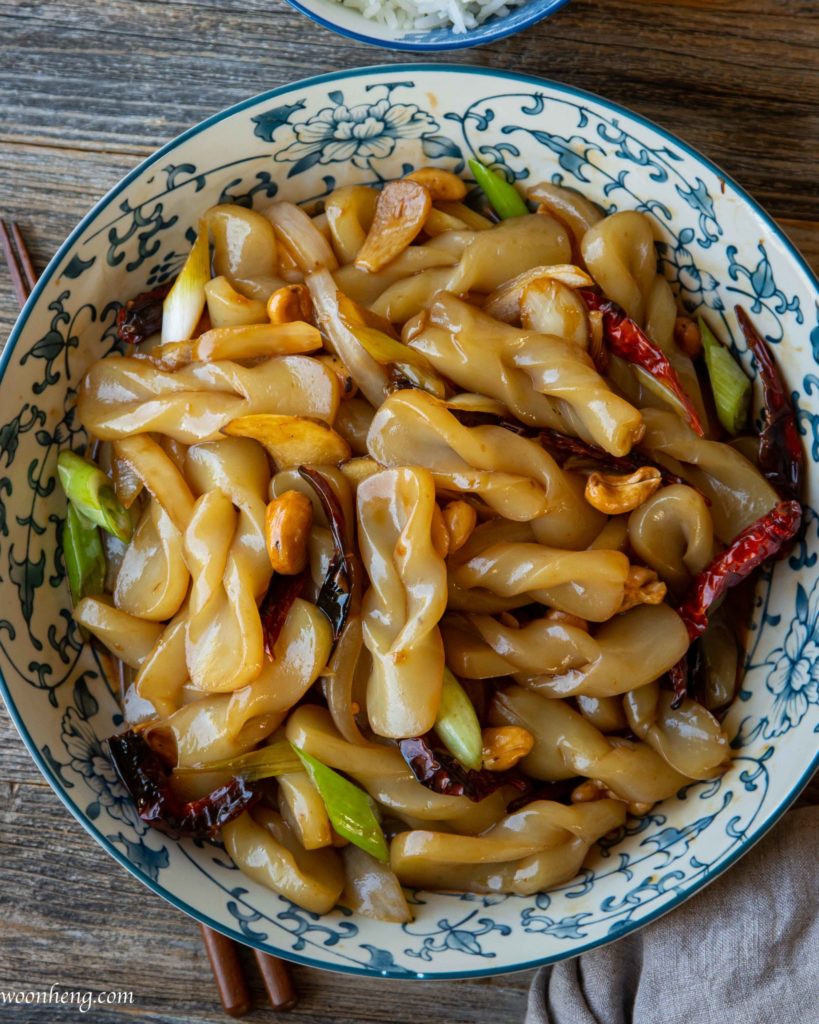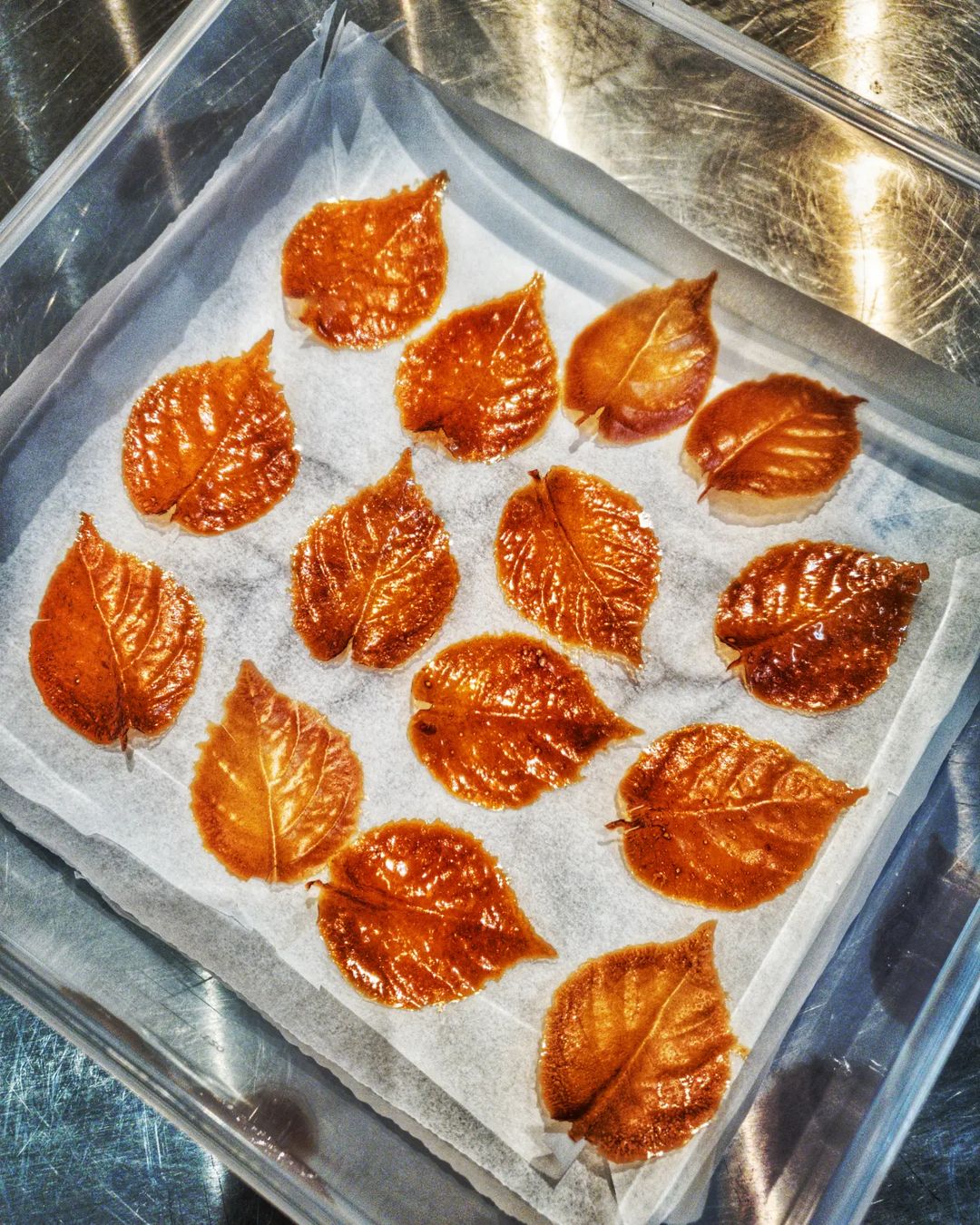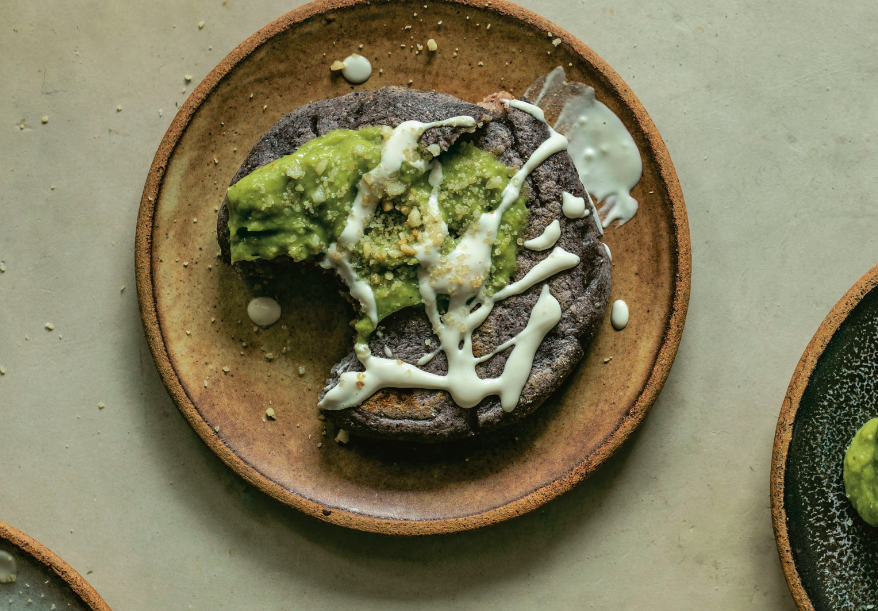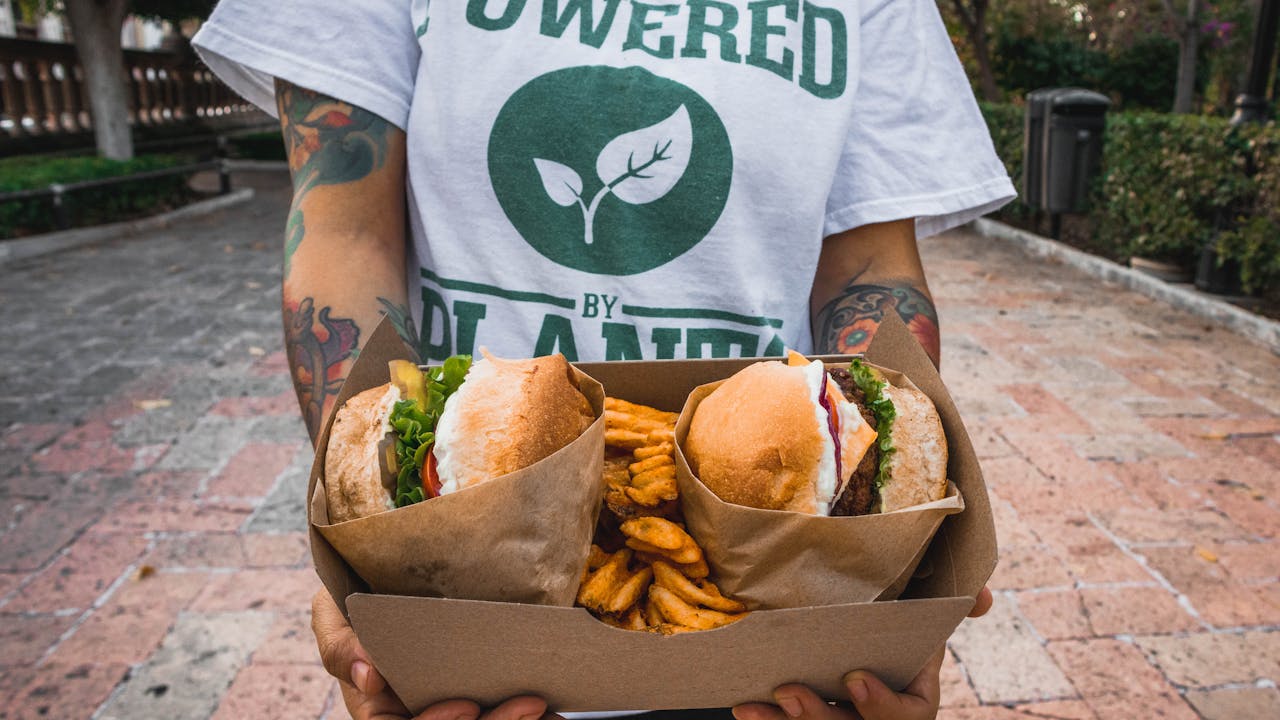According to Traditional Chinese Medicine (TCM), konjac can help with many different ailments. The root vegetable—which is native to subtropical and tropical parts of China, as well as Japan and Southeast Asia—has traditionally been used to dissolve phlegm, relieve pain, and even treat bruising, according to TCM Food Therapy.
While modern medical research does not fully support many of these specific claims, there is evidence suggesting that konjac may offer notable health benefits. Studies indicate it could promote gut health and help manage cholesterol levels, potentially reducing the risk of certain diseases.
But eating konjac isn’t just about its health advantages—it’s also prized for its unique texture. Konjac is especially good at mimicking the mouthfeel of meat and fish products, from steak to squid, and it serves as a versatile base for noodles as well. Below are some of our favorite konjac recipes, but first, let’s take a closer look at this fascinating plant and its potential health benefits.
Table of Contents
What is konjac?
Konjac, also known as Amorphophallus konjac or konnyaku, has been cultivated across Asia for more than 2,000 years. It is particularly known for its starchy corm (a bulb-like underground stem), which is used to produce flour and gelatinous food products. It is a key component of several traditional Japanese dishes, including oden, a fish cake stew, and sashimi konnyaku, a cold gelatinous food served with miso or soy sauce. It’s also widely eaten in the form of shirataki noodles, which are thin, translucent, low-calorie noodles made from konjac flour.
Konjac is now popular outside of Asia, too. According to 360i Research, by 2030, the global konjac market could exceed $2 billion. It noted: “Increasing consumer education and awareness about the health benefits of konjac, paired with advancements in sustainable cultivation methods, present significant growth opportunities.”
Many Asian supermarkets around the world carry konjac products, including blocks and noodles, and you can also find konjac noodles on Amazon, from brands like Yuho and Hethstia.
WoonHeng
Is konjac healthy?
The starchy tuber-like corm of konjac is a good source of soluble dietary fiber, which means it comes with many significant health benefits. Right now, around 95 percent of Americans aren’t eating enough of the nutrient, which, according to Nichole Dandrea-Russert, MS, RDN, the author of The Fiber Effect, is the “foundation for a healthy gut.” She recently told VegNews: “A healthy gut leads to less acute and chronic inflammation, both in the gut and throughout the body.”
Research suggests fiber may also help to lower cholesterol, help manage blood sugar, reduce the risk of certain types of cancer, and even reduce the risk of Alzheimer’s disease.
In 2023, one study published in the journal Nutritional Neuroscience examined data from more than 3700 people from Japan and found that those with the highest fiber intake had the lowest risk of dementia. The people who ate the most fiber, 18 to 65 grams per day, had a 26 percent lower risk than the people who ate the least, which was two to 10 grams per day.
What does konjac taste like?
Konjac doesn’t have a strong flavor. In fact, it is often described as having a “mild” or “neutral” taste. But this means that it is incredibly versatile, and it can absorb the flavors of the ingredients it’s cooked with well. Most people eat konjac because of its chewy, meaty texture, which makes it a great plant-based alternative.
Vegan konjac recipes
Find out more about some of the best ways to eat with konjac below.
1 10-Minute Konjac Steak
“One of my favorite ways of preparing konjac is cutting them into ‘steaks’ and simmering them in a dark sweet soy sauce glaze,” says Bora of All Purpose Veggies, who created this satiating, meaty, quick vegan steak recipe. “You only need just four ingredients and 10 minutes to make it,” she adds.
Get the recipe
2 Vegan Spicy Stir-Fried Squid
“To replace the squid, we’re using konnyaku, which is a root vegetable,” says Lisa Kitahara the recipe developer behind Okonomi Kitchen and the creator of this delicious vegan spicy stir-fried squid recipe. “The dietary fibrous part of the plant is used to make blocks of konnyaku or noodles, which resembles a similar texture to squid or octopus– chewy with a bite.”
Get the recipe
3 Vegan Laab With Konjac Noodles
“Don’t be put off by the fact that konjac is bland,” says Nart of Cooking With Nart. “The good thing about it is that it pairs well with strong, flavorful salad dressings and soups.” That’s why she chose it to make a vegan version of laab, a flavorful minced meat salad eaten across Thailand.
Get the recipe
4 Vegan Thai Coconut Curry With Konjac Noodles
Eva Katona of Captain Bobcat Blog paired this ultra-tasty Thai coconut curry with konjac noodles, which, according to the recipe developer, “taste just regular noodles” and will soak up all the delicious flavor of this “fragrant, spicy soup.”
Get the recipe
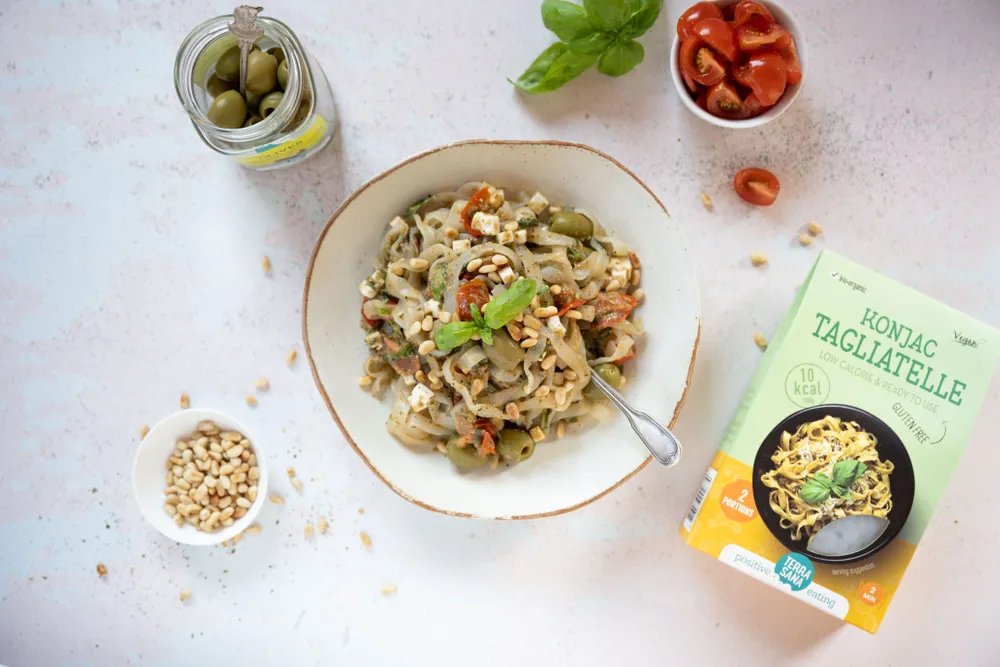 TerraSana
TerraSana
5 Konjac Tagliatelle With Pesto
Pasta lovers, listen up. This konjac tagliatelle is incredibly quick and easy to whip up, and it’s delicious, too. “This healthy recipe has a Mediterranean edge,” says Ingrid Duifhuizen of TerraSana. “The pasta resembles tagliatelle in shape, so with a little pesto and Mediterranean vegetables you have a tasty low-carb pasta in no time.”
Get the recipe
6 Vegan Shrimp Tacos Recipe
If you love shellfish dishes, but not actual shellfish, check out these tasty vegan shrimp tacos which are made with, you guessed it, konjac. “The texture and the taste of it are honestly very shrimp-like,” says Nija Clark of The Vgn Way. “So, say hello to all your favorite shrimp dishes and make this a staple you always have on hand when that craving hits.”
Get the recipe
7 Kung Pao Vegan ‘Squid’
This recipe from WoonHeng Chia pairs konjac with Malaysian-inspired kung pao sauce with delicious results. “The konnyaku’s texture is on point and the sauce has a great spicy kick to it,” says Chia. “It’s a perfect dish with a bowl of rice.”
Get the recipe
For more plant-based stories like this, read:
Here at VegNews, we live and breathe the plant-based lifestyle, and only recommend products we feel make our lives amazing. Occasionally, articles may include shopping links where we might earn a small commission, but in no way does this effect the editorial integrity of VegNews.

